Jeep Avenger vs Kia Niro – Which car suits you better?
Costs and Efficiency:
Price and efficiency are often the first things buyers look at. Here it becomes clear which model has the long-term edge – whether at the pump, the plug, or in purchase price.
Jeep Avenger has a distinct advantage in terms of price – it starts at 21900 £, while the Kia Niro costs 29100 £. That’s a price difference of around 7192 £.
Fuel consumption also shows a difference: Kia Niro manages with 2.40 L and is therefore clearly more efficient than the Jeep Avenger with 4.90 L. The difference is about 2.50 L per 100 km.
As for range, the Jeep Avenger performs significantly better – achieving up to 400 km, about 338 km more than the Kia Niro.
Engine and Performance:
Power, torque and acceleration say a lot about how a car feels on the road. This is where you see which model delivers more driving dynamics.
When it comes to engine power, the Kia Niro has a a bit edge – offering 180 HP compared to 156 HP. That’s roughly 24 HP more horsepower.
In acceleration from 0 to 100 km/h, the Jeep Avenger is to a small extent quicker – completing the sprint in 9 s, while the Kia Niro takes 9.90 s. That’s about 0.90 s faster.
In terms of top speed, the Jeep Avenger performs barely noticeable better – reaching 194 km/h, while the Kia Niro tops out at 185 km/h. The difference is around 9 km/h.
There’s also a difference in torque: Kia Niro pulls barely noticeable stronger with 265 Nm compared to 260 Nm. That’s about 5 Nm difference.
Space and Everyday Use:
Cabin size, boot volume and payload all play a role in everyday practicality. Here, comfort and flexibility make the difference.
Both vehicles offer seating for 5 people.
In curb weight, Jeep Avenger is noticeable lighter – 1180 kg compared to 1474 kg. The difference is around 294 kg.
In terms of boot space, the Kia Niro offers somewhat more room – 451 L compared to 380 L. That’s a difference of about 71 L.
In maximum load capacity, the Kia Niro performs a bit better – up to 1445 L, which is about 168 L more than the Jeep Avenger.
When it comes to payload, Jeep Avenger minimal takes the win – 502 kg compared to 466 kg. That’s a difference of about 36 kg.
Who comes out on top?
Overall, the Jeep Avenger shows itself to be is largely superior and secures the title of DriveDuel Champion.
It convinces with the more balanced overall package and proves to be the more versatile choice for everyday use.
Costs and Consumption
View detailed analysis
Engine and Performance
View detailed analysis
Dimensions and Body
View detailed analysis
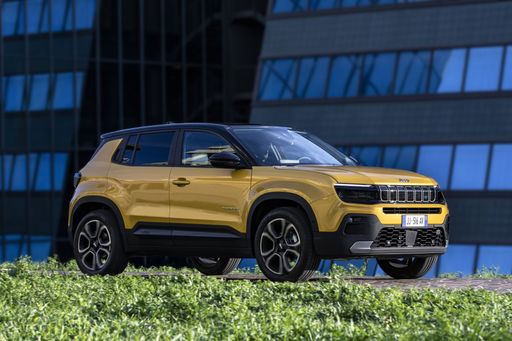 @ Jeep / Stellantis Media
@ Jeep / Stellantis Media
Jeep Avenger
Jeep Avenger
The Jeep Avenger shrinks Jeep's boxy, adventurous styling into a city-friendly electric crossover that looks just as at home on tight streets as it does on muddy weekend lanes. It's a savvy pick for drivers who want go-anywhere attitude without the truck-size ego — practical inside, lively around town and ready to tackle a bit of rough stuff when the mood strikes.
details @ Jeep / Stellantis Media
@ Jeep / Stellantis Media
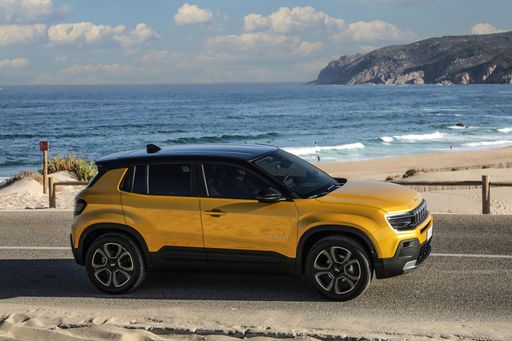 @ Jeep / Stellantis Media
@ Jeep / Stellantis Media
 @ Jeep / Stellantis Media
@ Jeep / Stellantis Media
 @ Jeep / Stellantis Media
@ Jeep / Stellantis Media
 @ Jeep / Stellantis Media
@ Jeep / Stellantis Media
Kia Niro
The Kia Niro blends clever packaging and modern styling into a compact crossover that’s refreshingly sensible for daily life. It’s comfortable, economical and packed with user‑friendly tech, so if you want a fuss‑free family car with a touch of green credibility, the Niro is worth a test drive.
details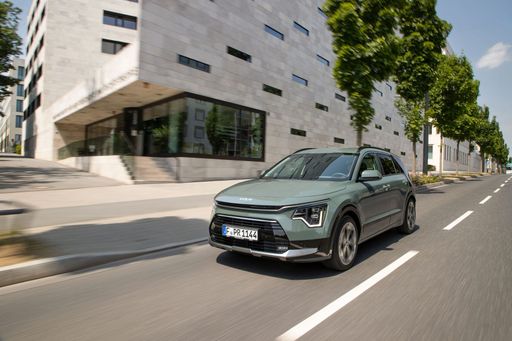 @ Kia Corporation
@ Kia Corporation
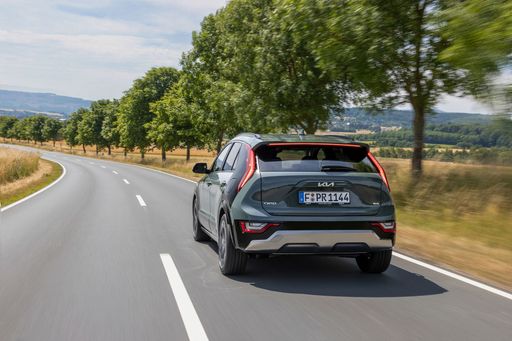 @ Kia Corporation
@ Kia Corporation
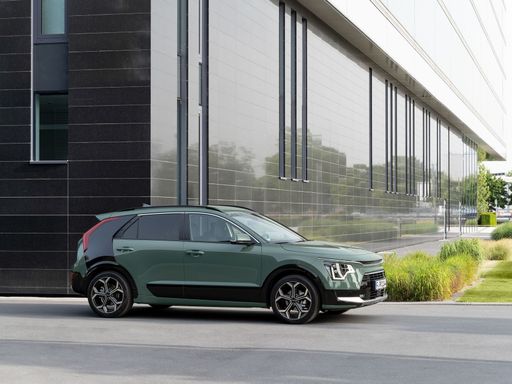 @ Kia Corporation
@ Kia Corporation
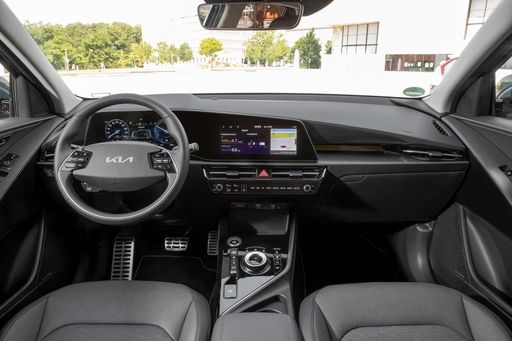 @ Kia Corporation
@ Kia Corporation
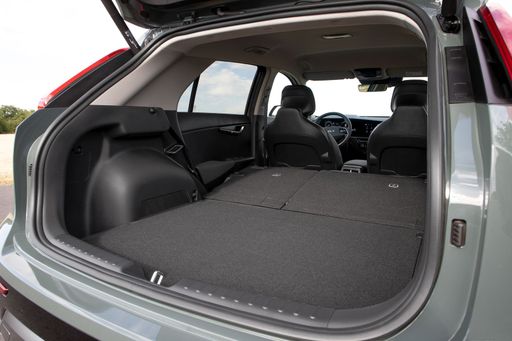 @ Kia Corporation
@ Kia Corporation
 @ Jeep / Stellantis Media
@ Jeep / Stellantis Media
|
 @ Kia Corporation
@ Kia Corporation
|
|
|
|
Costs and Consumption |
|
|---|---|
|
Price
21900 - 36900 £
|
Price
29100 - 38600 £
|
|
Consumption L/100km
4.9 - 5.7 L
|
Consumption L/100km
2.4 - 4.9 L
|
|
Consumption kWh/100km
15.50 kWh
|
Consumption kWh/100km
-
|
|
Electric Range
400 km
|
Electric Range
57 - 62 km
|
|
Battery Capacity
51 kWh
|
Battery Capacity
1.3 - 11.1 kWh
|
|
co2
0 - 129 g/km
|
co2
53 - 111 g/km
|
|
Fuel tank capacity
44 L
|
Fuel tank capacity
37 - 42 L
|
Dimensions and Body |
|
|---|---|
|
Body Type
SUV
|
Body Type
SUV
|
|
Seats
5
|
Seats
5
|
|
Doors
5
|
Doors
5
|
|
Curb weight
1180 - 1520 kg
|
Curb weight
1474 - 1594 kg
|
|
Trunk capacity
325 - 380 L
|
Trunk capacity
348 - 451 L
|
|
Length
4084 - 4088 mm
|
Length
4420 mm
|
|
Width
1776 mm
|
Width
1825 mm
|
|
Height
1527 - 1541 mm
|
Height
1545 mm
|
|
Max trunk capacity
1218 - 1277 L
|
Max trunk capacity
1342 - 1445 L
|
|
Payload
494 - 502 kg
|
Payload
466 kg
|
Engine and Performance |
|
|---|---|
|
Engine Type
Electric, Petrol, Petrol MHEV
|
Engine Type
Full Hybrid, Plugin Hybrid
|
|
Transmission
Automatic, Manuel
|
Transmission
Automatic
|
|
Transmission Detail
Reduction Gearbox, Manual Gearbox, Dual-Clutch Automatic
|
Transmission Detail
Dual-Clutch Automatic
|
|
Drive Type
Front-Wheel Drive, All-Wheel Drive
|
Drive Type
Front-Wheel Drive
|
|
Power HP
100 - 156 HP
|
Power HP
138 - 180 HP
|
|
Acceleration 0-100km/h
9 - 10.6 s
|
Acceleration 0-100km/h
9.9 - 11.4 s
|
|
Max Speed
150 - 194 km/h
|
Max Speed
170 - 185 km/h
|
|
Torque
205 - 260 Nm
|
Torque
265 Nm
|
|
Number of Cylinders
3
|
Number of Cylinders
4
|
|
Power kW
74 - 115 kW
|
Power kW
102 - 132 kW
|
|
Engine capacity
1199 cm3
|
Engine capacity
1580 cm3
|
General |
|
|---|---|
|
Model Year
2023 - 2025
|
Model Year
2025
|
|
CO2 Efficiency Class
A, D, C
|
CO2 Efficiency Class
C, B
|
|
Brand
Jeep
|
Brand
Kia
|
What drivetrain options does the Jeep Avenger have?
Available configurations include Front-Wheel Drive or All-Wheel Drive.
The prices and data displayed are estimates based on German list prices and may vary by country. This information is not legally binding.
